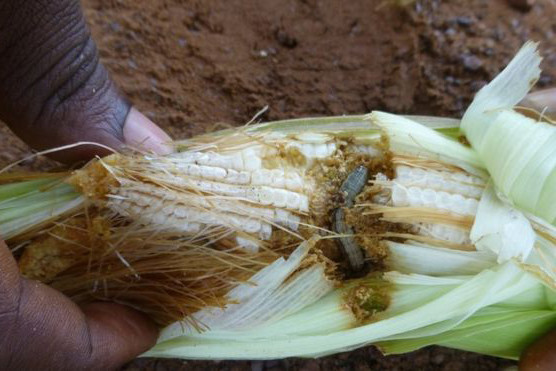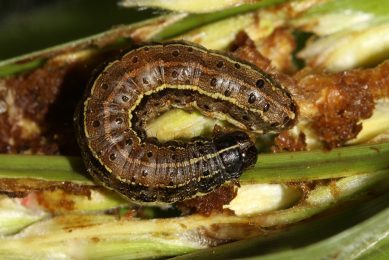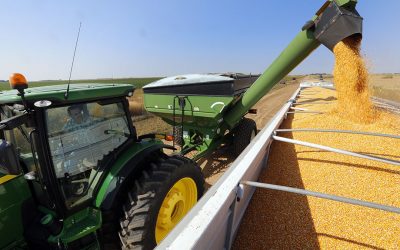Armyworm in maize is spreading rapidly in Africa

A recently introduced crop-destroying armyworm caterpillar is now spreading rapidly across Mainland Africa and could spread to tropical Asia and the Mediterranean in the next few years, becoming a major threat to agricultural trade worldwide.
This is according to new research from CABI I (Centre for Agriculture and Biosciences International).
Fall armyworm can devastate maize production
Fall armyworm is native to North and South America and can devastate maize production, the staple food crop that is essential for food security in large areas of Africa. It destroys young plants, attacking their growing points and burrowing into the cobs.
Indigenous to the Americas now found in Ghana
An indigenous pest in the Americas, it has not previously been established outside the region. In the past year, it was found in parts of West Africa for the first time and now a CABI-led investigation has confirmed it to be present in Ghana. It can be expected to spread to the limits of suitable African habitat within a few years.
A first – both armyworm species on mainland Africa
CABI Chief Scientist, Dr Matthew Cock said, “The analysis of our collections from 3 different regions in Ghana has shown that both species or strains of the fall armyworm are widespread attacking maize. This is the first time it has been shown that both species or strains are established on mainland Africa. Following earlier reports from Nigeria, Togo and Benin, this shows they are clearly spreading very rapidly. Fall armyworm can be expected to spread to the limits of suitable African habitat within a few years.”
Also interesting: New insights to fight soybean pest
Urgent action needed to control this pest
Urgent action is now needed to help farmers and researchers working in affected areas to accurately identify and work out the best strategies to control this pest. He continued, “This invasive species is now a serious pest spreading quickly in tropical Africa and with the potential to spread to Asia. Urgent action will be needed to prevent devastating loses to crops and farmers’ livelihoods. CABI will support national extension services to help farmers identify the different species quickly and accurately, and conduct studies to work out the best way to control it – for example biological controls which reduce the need for insecticide.”
Also interesting: Can Africa feed itself in the future?
Earlier this month, Reuters reported that a plague of suspected armyworms destroyed 2000 hectares of crop fields in Malawi and was spreading at alarming rates. These outbreaks can cause devastating losses and have resulted in a mounting debt crisis amongst many farmers in affected areas.











